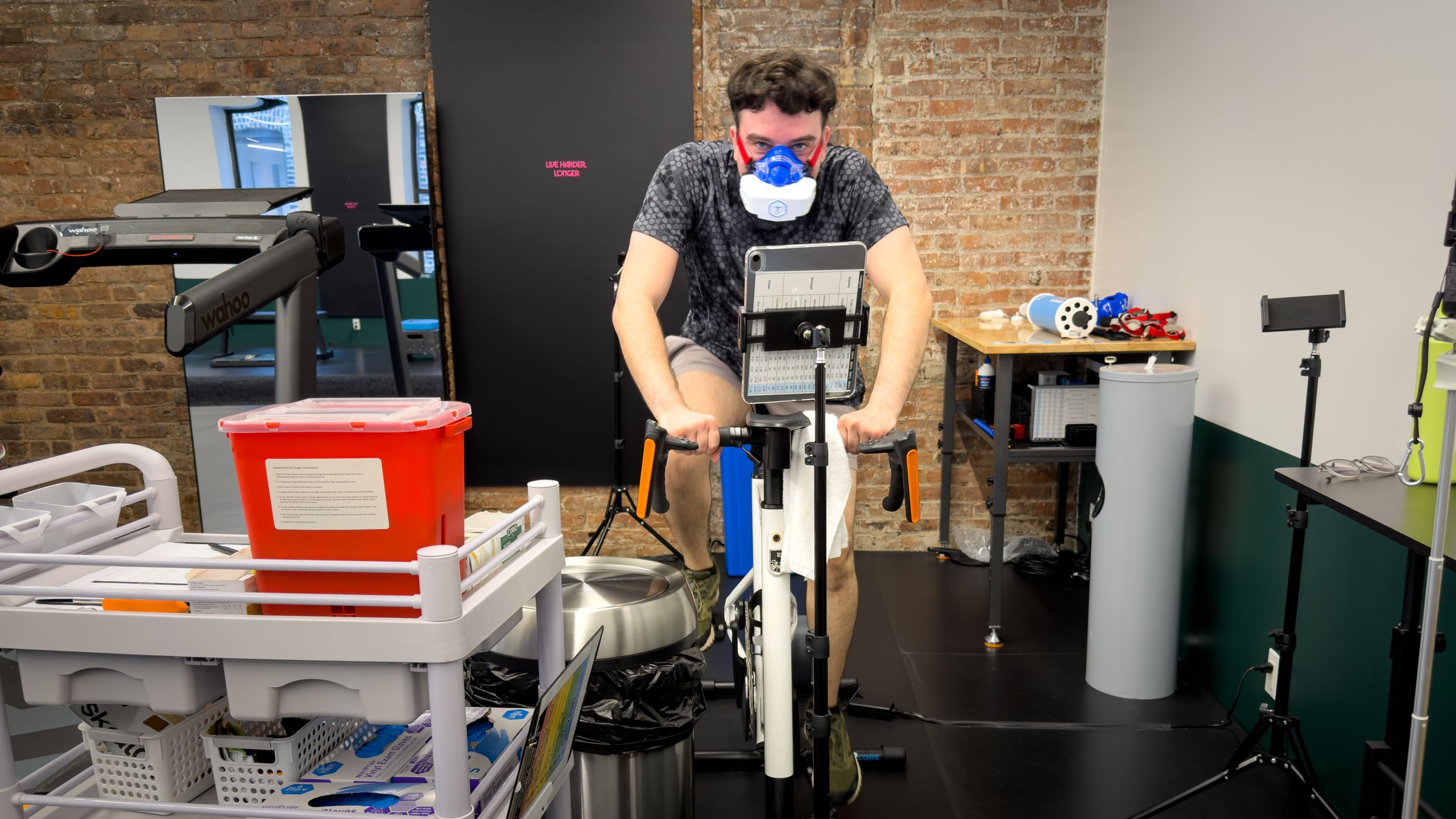Copyright Tom's Guide

I’m trying to kick off my 2026 New Year’s resolution early with a health routine that goes beyond just hitting the gym consistently. I’ve been working out twice a week, which I think isn’t half bad for someone juggling work, travel, and colder weather. But I know there’s a whole side of wellness I’m still ignoring: nutrition, body composition, and actually understanding why my body feels the way it does.. For me to get stronger or healthier isn’t just about amping up the cardio or cutting down on carbs, it’s about establishing my baseline and building realistic goals to work towards.. So what if I could get those insights from my doctor while at the gym? That’s where Eternal Health, a concierge wellness platform that combines medical care with performance tracking, comes in. Eternal recently launched a $499-a-year Primary Care tier to its existing memberships, and to learn more about what this nontraditional wellness initiative offers, I decided to experience for myself what it's like to have your doctor, trainer, and health data under one roof. Dismissing the typical 15-minute doctor visit Traditional doctor visits are reactive, usually 15 minutes with a clipboard and vague advice like “exercise more.” Eternal’s Primary Care membership, rather, combines medical insight with training-lab precision for a proactive plan to understand your health. This includes a dedicated care team of a doctor, nurse practitioner, and care coordinator, plus annual labs and a DEXA scan, all tracked in an app that syncs with your wearable. The team monitors changes over time and can reach out proactively if something looks off. Dr. Desmond Wilson, Eternal’s Chief Medical Officer, explained the system as “closing the loop between medical care, physical performance, and everyday health, so your doctor and coach are speaking the same language.” The ultimate health assessment Eternal’s new Manhattan space is quite possibly the furthest thing from a clinic. There’s no HGTV playing in the background or crowded waiting room with people coughing while scrolling their phones. The space is part gym, part lab, with everyone dressed up and moving around more like coaches than clinicians. My Eternal experience actually started a few weeks earlier with downloading the Eternal app, answering intake questions about my current workout routine, diet, past injuries, current mobility issues, and ultimate fitness goals. I also completed a blood work panel at a lab, which was sent over to Eternal to inform my holistic health workup.. But then it was time for the performance session. It started with a full body DEXA scan, the standard for measuring muscle mass, body-fat percentage and bone density. Next was a full-body strength, mobility and balance circuit which had me drenched in sweat after 20 minutes. As someone who’s never prioritized endurance training, I couldn’t help but think, “what have I gotten myself into?” Between the included single-leg balance tests, single-arm planks, isometric belt squats, pushups, pullups, jumping jacks, and force plates, this was easily the most that measured my strength and power. It was the most high tech workout of my life… and that was all before taking my first-ever VO₂ mask test on a stationary bike. By the end of it all, I was sore and exhausted, but I completed my evaluation across Eternal’s five “pillars”: health, body composition, aerobic health, strength and power, and mobility and stability. A smarter doctor’s office After I showered up and caught my breath, I sat down with Dr. Desmond Wilson, Eternal’s Chief Medical Officer. His team looks to “connect all the dots,” combining medical insights with performance data. They want your doctor to better understand you and not rush you out to see the next patient. The new Primary Care plan builds consistent access (not waitlists) with the ability to layer in advanced services like the performance assessment I completed. Other add-ons include a personal coach or dietitian. It’s “hyper-preventative medicine,” focused on keeping people well rather than waiting until they’re sick. If you have one of the best smart watches or best smart rings, you already have access to great performance metrics, but that doesn’t necessarily mean you know how to translate the data into meaningful action. Eternal’s system also integrates Strava, Oura, Google Fit, and Apple Health, so your doctors can see trends in workouts, sleep, and stress and flag issues proactively. “There’s too much fragmentation in healthcare. It’s like being lost in the woods with a map, a compas,s and GPS, but no idea which direction to go,” said Dr. Wilson.“We want to be the guide that connects all those tools for you.” The results are in: What my metrics say A few days after that grueling exam, the results from the fitness assessment and blood work popped up in my Eternal app profile, along with detailed notes from each specialist. The insights were pretty technical, but still digestible, benchmarking me against their highly active clients. Some surprises included my isometric belt squat landing in the 59th percentile, showing a strong lower-body base. But my jump test lagged, revealing that same strength wasn’t translating into explosive movement. My hip strength landed in the 12th percentile, a weak link affecting stability and movement control, which I hadn’t really considered as I’ve been getting back into playing basketball. Even my aerobic results and bloodwork got more context. Elevated lactate levels weren’t a red flag, but they showed my body could improve in handling metabolic stress. Slightly high insulin levels also weren’t alarming, but Eternal interpreted those levels as lifestyle factors like stress, poor sleep, and irregular eating schedules. These are factors I never realized impacted the rest of my health goals, and now I have actionable next steps to follow. Eternal Health Primary Care: Is it worth it? At $499 a year, Eternal’s Primary Care plan isn’t cheap and isn’t covered by insurance yet. But for that price, you get access to a dedicated care team, annual labs, and a DEXA scan, a level of insight and personalization you probably aren’t getting from your routine checkup. That could be a great value for anyone who wants a deeper, proactive understanding of their health, even if you don’t layer on their other add-ons. Eternal says it’s built for people who care about longevity and performance, but they also believe this kind of care should be more accessible. For some, that higher price tag might be worth it to finally have a doctor and coach who actually work together. And at the time of this article, they’re running a promo where the first year costs just $99, which makes it a lot easier to try out and see if it’s a good fit. For me, what stood out was how connected everything felt. The assessments, the metrics, the conversations with doctors and coaches, it’s a realistic game plan that I’ve already put into action. Being healthier in 2026 isn’t about working harder or doing more in the gym; it’s about understanding my body, my data, and being more proactive. Follow Tom's Guide on Google News and add us as a preferred source to get our up-to-date news, analysis, and reviews in your feeds. More from Tom's Guide



